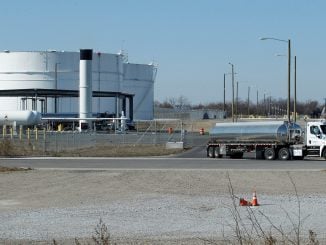RALEIGH — Over the past two months, government efforts to contain the coronavirus have brought national and local economies to a screeching halt. Consumer spending and consumer confidence are at their lowest since the 1950’s and the impact is particularly acute when it comes to the building and development sectors.
Before the pandemic struck, the Triangle region like many of its neighboring communities, was seeing an explosion in new construction with condos, office buildings, and single-family homes sprouting up left and right. But now Americans are holding onto their capital tighter than ever amidst so much economic uncertainty as indicated by the fact that the personal savings rate jumped to 9.6 percent in the first quarter of this year as compared to 7.6 percent in the previous quarter.
“For real estate developers, uncertainty is the worst and when there is uncertainty, they may decide to hold off on any large projects,” says Jacob Rogers, Chief Executive Officer of the Triangle Community Coalition.
The Morrisville-based non-profit is an association that advocates for private property rights on behalf of the residential and commercial real estate industry and seeks to influence land-use policies that balance economic growth, development, the environment, and community needs. Its strategic partners include the Home Builders Association of Raleigh-Wake County and the Raleigh Regional Association of Realtors, among others.
“Our members make significant investments in our communities to create the places we where we all want to be,” says Rogers. “I’ve heard that several members have paused some of their projects to see what lies ahead economically. This may push out completion dates and consequently, cost our members more time and money. In turn, this will cost the consumer more money.”
 One of the biggest hurdles for realtors has been the inability to show property due to strict social distancing measures. While homes are still selling, the pace is much slower and the pipeline of homes in the development stage are far less. Rogers said this could create a shortage of homes resulting in price increases.
One of the biggest hurdles for realtors has been the inability to show property due to strict social distancing measures. While homes are still selling, the pace is much slower and the pipeline of homes in the development stage are far less. Rogers said this could create a shortage of homes resulting in price increases.
As far as retail is concerned, since many operations have been shut down for weeks now and suffered a loss of millions of dollars, expanding into new markets or areas may present new challenges. “I’m sure all of these companies may be re-evaluating their growth strategies for the future,” Rogers adds.
Mark Fulk is president of the full service commercial real estate firm The Meridian Realty Group, based in Winston-Salem. He says that even though real estate was deemed an essential business and allowed to continue operating during the state’s shelter in place orders, very little business was actually being done.
“Transactions that were already in the pipeline continued to progress in some cases, but in some they did not.” Fulk says he has one particular client who owns a large portfolio of restaurants and bars who backed out of a deal out of an abundance of caution. “Investors and developers are being asked by tenants to forgive rent for 60-90 days and it is a hardship on them to meet their obligations for loan payments and operating expenses without the rental income,” he said. “Also there is a reduced “mood to do deal” during a time when everyone is suffering.”
Industry insiders agree that while the intensity of this slowdown is not close to that of the 2008 Great Recession, the growth of building and development has slowed recently because of it. “Municipalities are starting to project revenue shortfalls due to the inactivity of development,” Rogers said. “Many are projecting Q3 and Q4 to be much stronger with demand.”
Fulk agreed with this somber assessment, pointing to the fact that even in 2008, the entire economy was not shut down as has been the case during the coronavirus. “Hopefully the plethora of closed restaurants, bars and retail shops that were impacted will open back up and see their customer support build back quickly,” he said. “Social distancing will be with us for several more months so everyone will be re-working their business models to adapt to this new normal, but I think the Fed will keep interest rates low thereby stimulating the economy.”
Rogers said that moving forward, he is confident that the demand for housing, commercial, and office space will still be there once we get to the other side of this pandemic. “Recessions are cyclical. The industry has weathered many of them throughout the years. The real estate development community always finds a way to meet the demand of tomorrow’s consumer.”
Triangle Community Coalition advocates on behalf of its members to receive fair treatment when it comes to North Carolina lawmakers’ legislative agenda. Rogers notes that heading into this fall’s election they will continue to lobby for a consistent and timely development process. “Developers spend millions on working through the municipal permitting and zoning process. When state and local governments clearly define and streamline that process, developers are able to offer less expensive products. If we’re able to cut the time of uncertainty, we’re able to cut the costs of the development drastically.”


